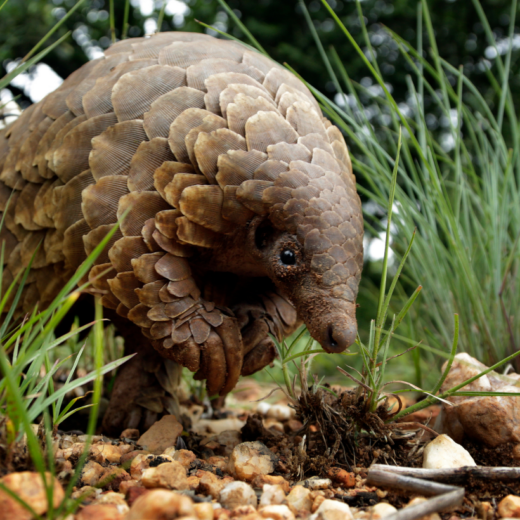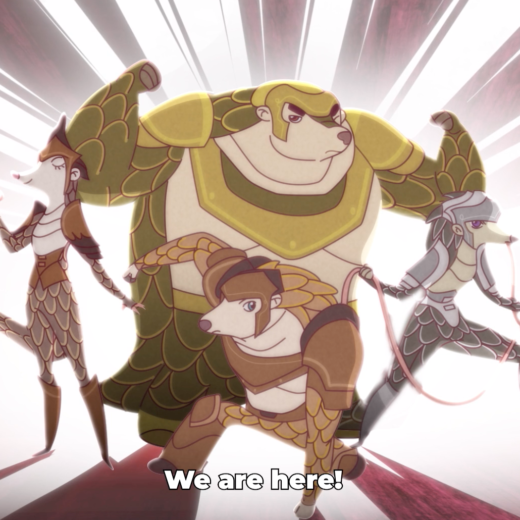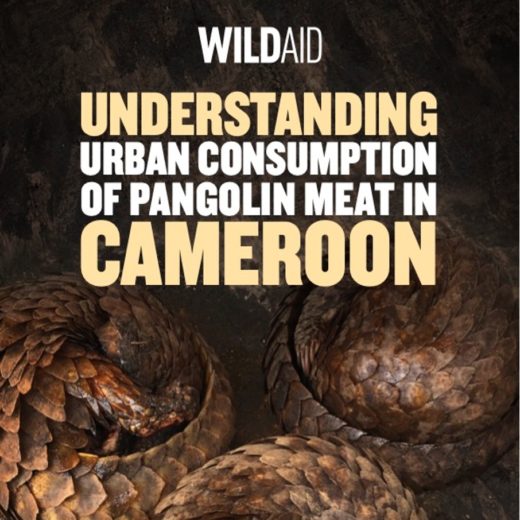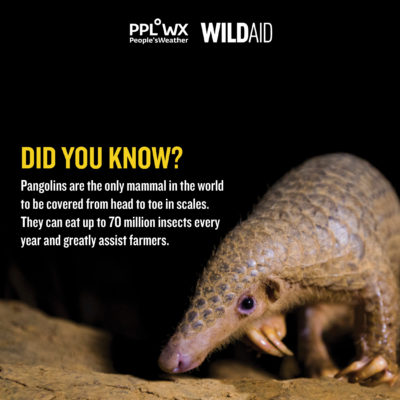
Anywhere from 100,000 to more than 2.5 million pangolins are taken from the wild every year across Africa and Asia, and populations of all eight species of pangolin are plummeting towards extinction.
This World Pangolin Day we shined a light on the plight of pangolins and outlined steps you can take to help them. If we don’t take urgent action now, we face losing these scaly anteaters forever.
Pangolins play a vital role in the environment by eating millions of ants and termites that can destroy farming crops, and by ensuring that soils remain healthy for vegetation.
In case you missed it, here are three ways you can raise awareness and help protect pangolins:
1. Say NO to pangolin meat
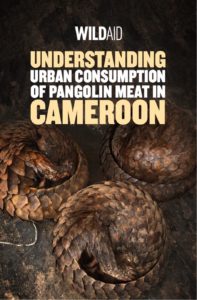

Cameroon’s lush rainforests is a key habitat for three species: the giant pangolin, the white-bellied pangolin and the black-bellied pangolin. All three face growing threats from poaching, deforestation and habitat loss.
The campaign highlights the illegal and unsustainable use of pangolins in the bushmeat trade in Cameroon and the risks of zoonotic disease transmission. Results of two new public attitudinal survey reports were also released, which underscore the high level of bushmeat consumption and low awareness of laws protecting pangolins, along with high levels of pride for Cameroon’s forests and rich natural heritage.
Download the report: UNDERSTANDING URBAN CONSUMPTION OF PANGOLIN MEAT IN CAMEROON
Download the report: ATTITUDES TOWARDS PANGOLINS AND WILDLIFE AMONG THE GENERAL PUBLIC IN URBAN CAMEROON
Help raise awareness by sharing the #SayNoToPangolinMeat campaign with your social media networks
2. Join 11-year-old comedienne Emanuella to say NO to illegal bushmeat from pangolins and other protected animals
Nigeria’s popular comedienne and actress Emanuella Samuel has joined forces with WildAid to raise awareness about the illegal bushmeat trade and how it impacts wildlife populations, particularly pangolins.
Emanuella is highly loved and respected in Nigeria and across Africa, especially on Facebook, where she has 14 million followers (the most-followed Nigerian page as of February 2022).
In this new video, Emanuella raises the reality that if we continue hunting pangolins at the current rate, they will soon disappear.
3. WIN a private safari with WildAid and People’s Weather channel
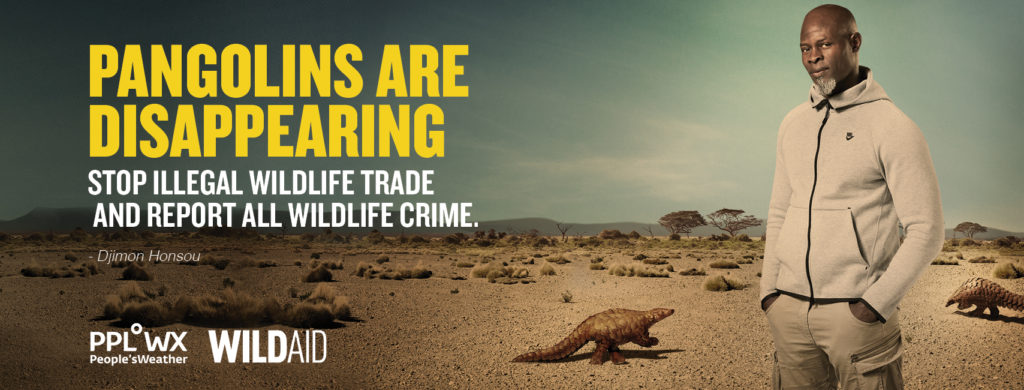

WildAid has teamed up with People’s Weather, Africa’s first and only 24/7 weather, environmental news and lifestyle channel, to raise awareness about the plight of pangolins through a competition and by releasing the documentary, “A Pangolin’s Tale” airing on the channel between February and March 2022.
Watch “A Pangolin’s Tale” and join WildAid Ambassador, Djimon Hounsou, on an epic adventure to learn about the many threats pangolins face around the world. Accompanied by our WildAid crew, Djimon investigates wildlife markets, visits a local wildlife vet, meets with a local pangolin conservationist, and learns about the pangolin crisis from a wildlife rehabilitation specialist.
Earn a chance to win a private game drive for you and nine of your friends at the magnificent Pilanesberg National Park by answering three easy questions from “A Pangolin’s Tale” airing on People’s Weather. Competition entries are open to South African residents and closes on Saturday 12 March 2022 at 12:00.
Stay in touch and get the latest WildAid updates.
SIGN UP
